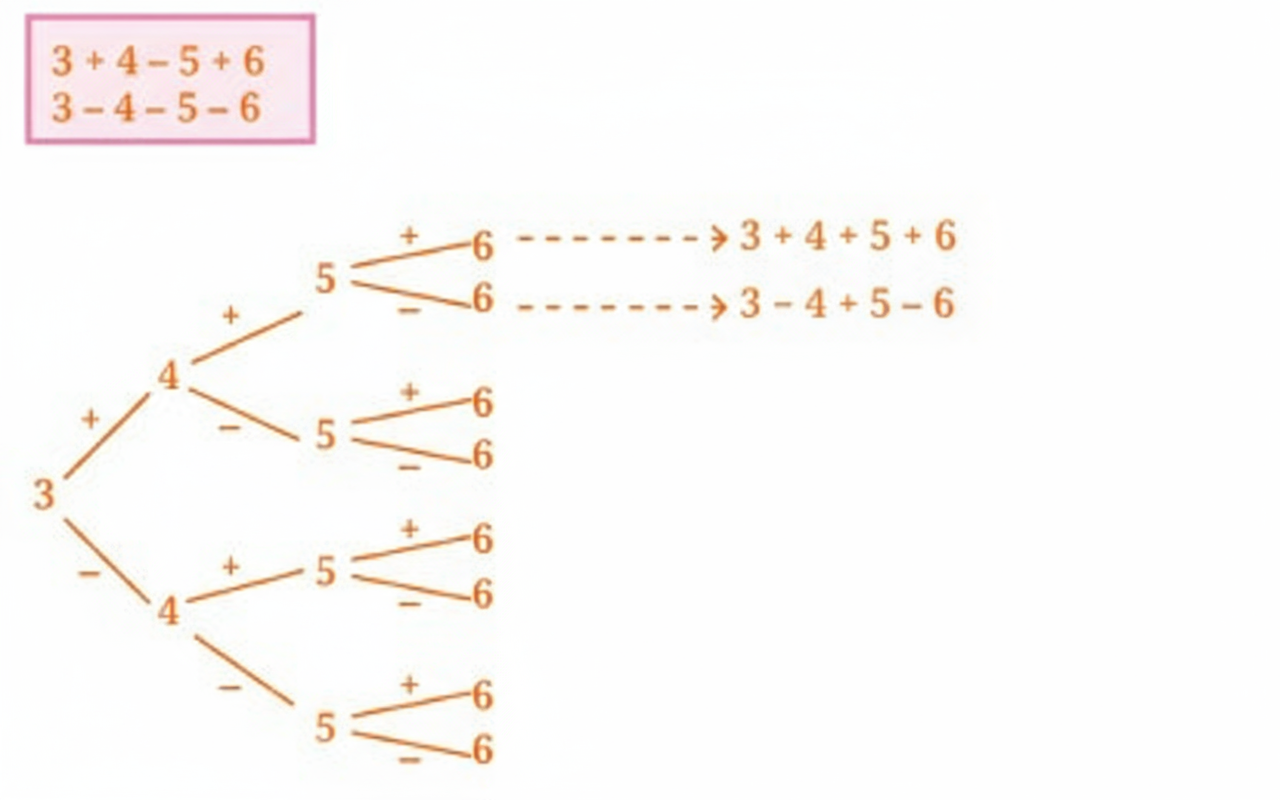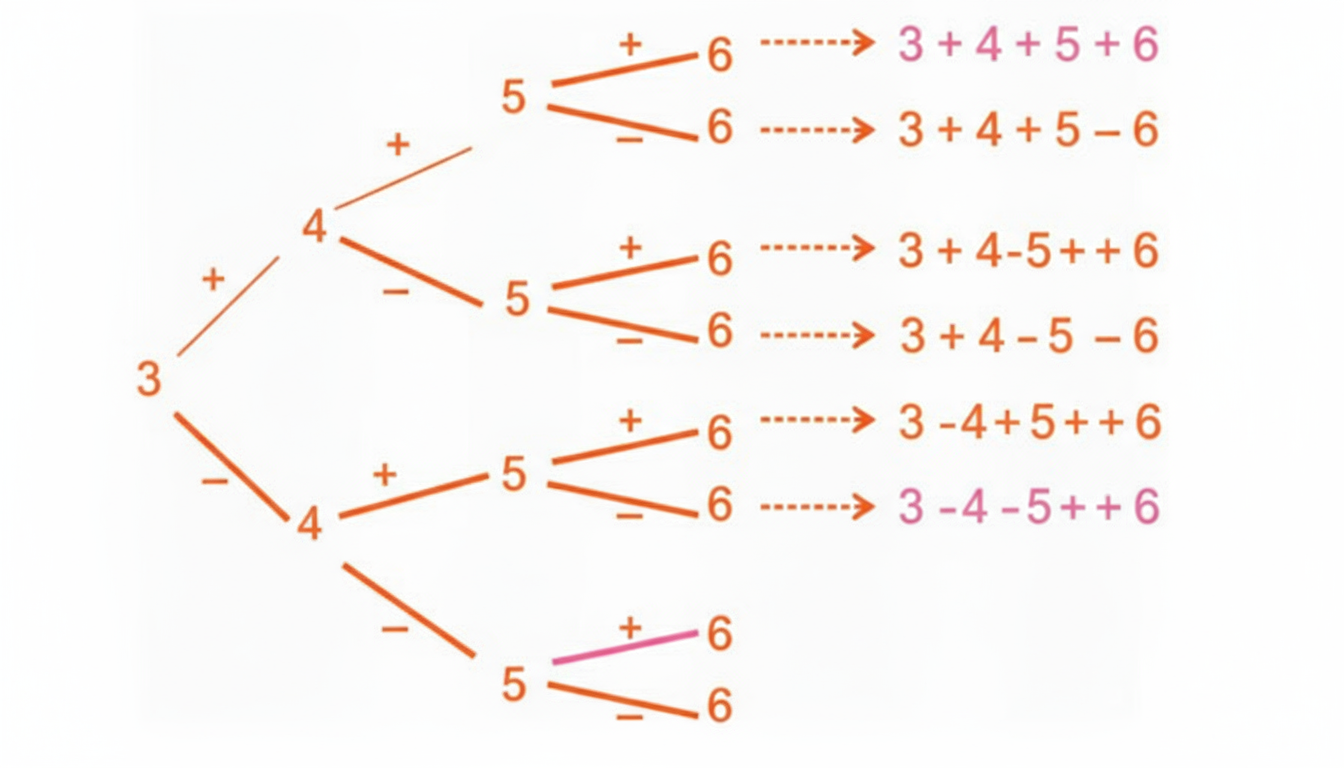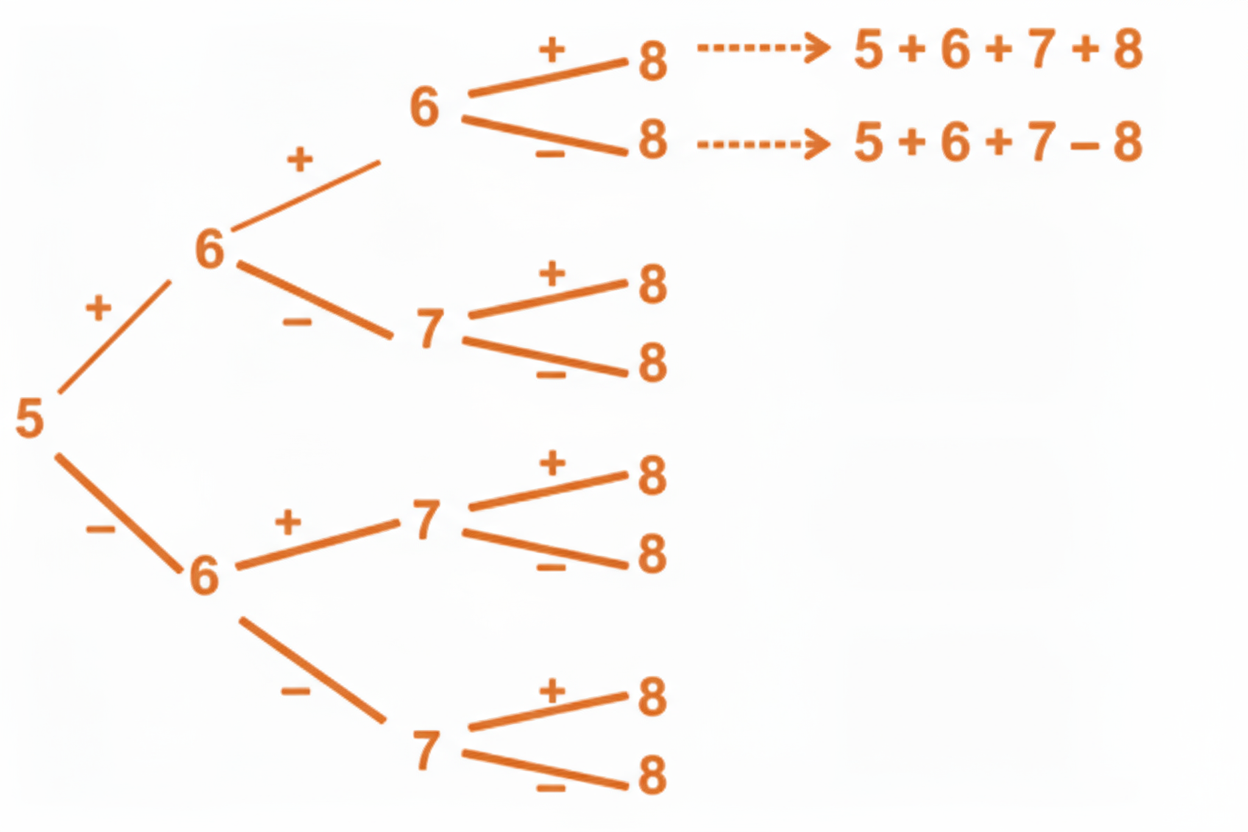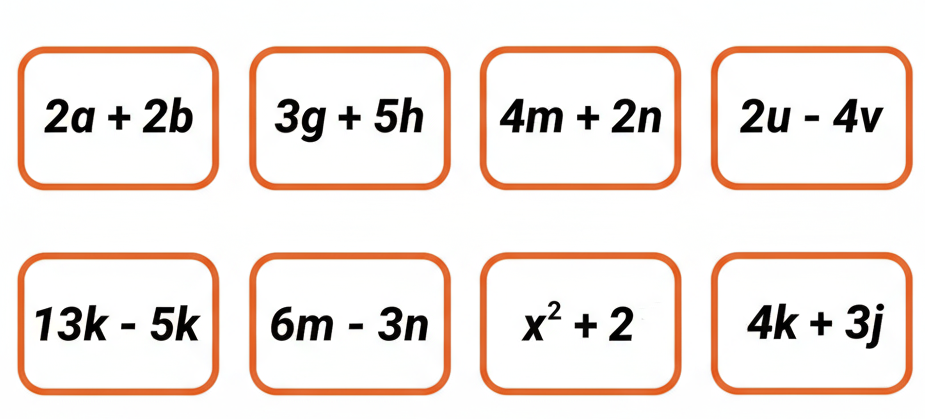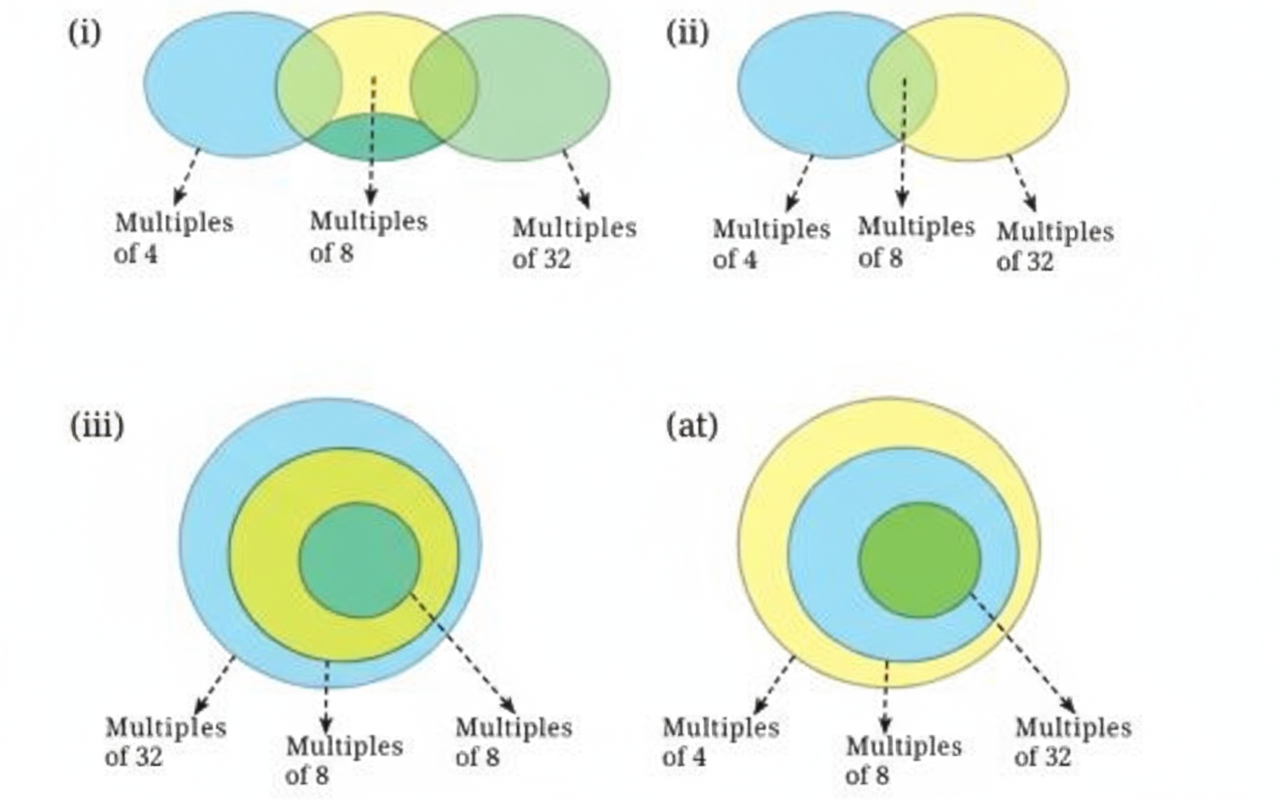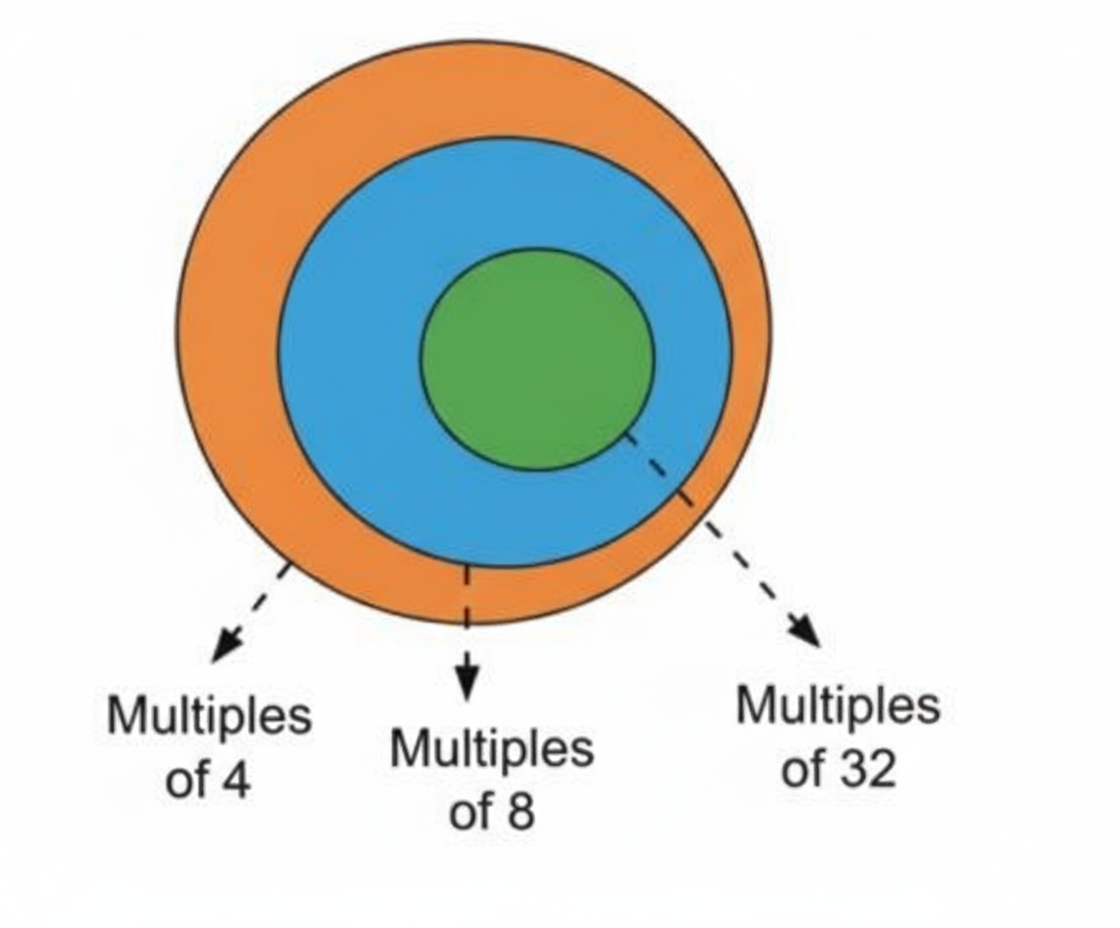How to Write Perfect Answers for Number Play in Class 8 Maths
FAQs on NCERT Solutions For Class 8 Maths Chapter 5 Number Play (2025-26)
1. What are the key concepts covered in NCERT Solutions for Class 8 Maths Chapter 5 Number Play?
NCERT Solutions for Class 8 Maths Chapter 5 Number Play focus on important number properties, including divisibility tests, prime factorization, and patterns in numbers, all aligned with the latest CBSE syllabus. By working through stepwise solutions for each exercise, students build a strong foundation in concepts essential for exams.
2. How can I write stepwise answers for Class 8 Maths Chapter 5 Number Play to score full marks?
Presenting stepwise answers for Class 8 Maths Chapter 5 Number Play is crucial to scoring full marks in CBSE exams. Each step should be logical, clearly shown, and use correct terminology:
- Start with a brief statement of the question or given data
- Show each calculation or reasoning point separately
- Highlight formulas or definitions where used
- Draw boxes around final answers
- Follow the structure found in Vedantu’s NCERT Solutions for clarity and alignment with marking schemes
3. Which types of questions from NCERT Solutions Class 8 Maths Chapter 5 Number Play are frequently asked in CBSE exams?
NCERT Solutions for Class 8 Maths Chapter 5 Number Play often receive exam questions based on:
- Application of divisibility tests (especially 2, 3, 5, 9, 10)
- Identifying prime and composite numbers
- Expressing numbers as a product of primes
- Word problems involving factors and multiples
- Real-life situations requiring patterns or rules from the chapter
4. Are diagrams or definitions mandatory in answers for NCERT Solutions Class 8 Maths Chapter 5 Number Play?
Including accurate definitions is essential whenever the question asks for them, especially for terms like prime number, composite number, or divisibility. While diagrams are generally not required for this chapter, structured tables/boxes may sometimes help in presenting factors or stepwise methods more clearly, as demonstrated in Vedantu’s exercise-wise solutions.
5. Where can I download the free PDF of NCERT Solutions for Class 8 Maths Chapter 5 Number Play on Vedantu?
To access a free PDF of NCERT Solutions for Class 8 Maths Chapter 5 Number Play, simply use the download option provided by Vedantu on this chapter page. These PDFs are designed for offline revision, follow each exercise as per the textbook, and are updated for the CBSE 2025–26 syllabus.
6. What are the most important topics to focus on in NCERT Solutions for Class 8 Maths Chapter 5 Number Play for the CBSE 2025–26 exam?
Key topics from NCERT Solutions for Class 8 Maths Chapter 5 Number Play include:
- Divisibility rules and their applications
- Prime factorization techniques
- Identifying and writing multiples and factors
- Solving real-world application problems based on number properties
7. Do examiners award partial marks for correct steps even if the final answer is wrong in NCERT Solutions Class 8 Maths Chapter 5 Number Play?
Yes, for CBSE exams using NCERT Solutions for Class 8 Maths Chapter 5 Number Play, examiners generally award partial marks for each correctly shown calculation step, even if the final answer is incorrect. Ensure each step is clear and methodically written, as practiced in Vedantu’s solutions.
8. How do I structure long answers for Class 8 Maths Chapter 5 Number Play to impress CBSE examiners?
A well-structured long answer in Class 8 Maths Chapter 5 Number Play answers the question pointwise, uses clear headings for each part (like stepwise reasoning or explanations), and summarizes at the end. Practicing with Vedantu’s answer formats will help you align with expected standards.
9. Are NCERT Solutions enough for Class 8 Maths Chapter 5 Number Play, or should I use extra resources?
NCERT Solutions for Class 8 Maths Chapter 5 Number Play provided by Vedantu are usually sufficient to cover all core concepts and exam-style questions. However, for extra practice or higher-order thinking, you may attempt NCERT Exemplar and Vedantu-curated challenge problems to further boost your exam readiness.
10. What is the best way to revise NCERT Solutions for Class 8 Maths Chapter 5 Number Play before exams?
To revise NCERT Solutions for Class 8 Maths Chapter 5 Number Play quickly and effectively, follow Vedantu’s revision planner:
- Review all key definitions and formulae
- Practice at least one question from each exercise, focusing on stepwise logic
- Use Vedantu’s quick notes and flashcards for last-minute recall
- Attempt sample questions under timed conditions
11. How do I avoid common mistakes in exam answers for Class 8 Maths Chapter 5 Number Play?
Preventing errors when answering NCERT Solutions for Class 8 Maths Chapter 5 Number Play is important for success. Watch out for these common do’s and don’ts:
Do:- Show every calculation step
- Check divisibility rules carefully
- Circle final answers
- Skip definitions or explanations
- Mix up prime and composite numbers
- Write steps out of order
12. Are references to textbook page numbers helpful when revising NCERT Solutions for Class 8 Maths Chapter 5 Number Play?
Referring to textbook page numbers can help you quickly locate solutions for Class 8 Maths Chapter 5 Number Play in the NCERT book, ensuring no exercise or problem is missed. Vedantu’s solutions clearly indicate exercise numbers and topics, making revision smoother and faster for students preparing for CBSE exams.
























